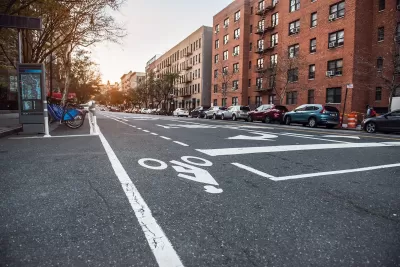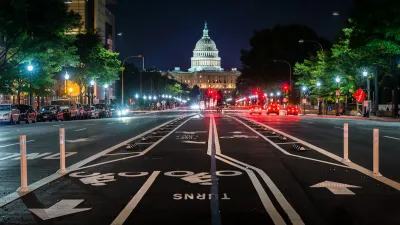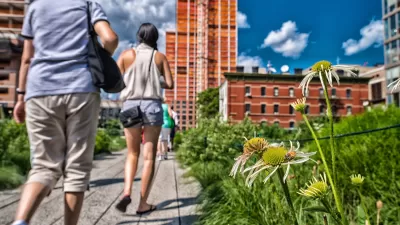This year’s round of Safe Streets for All grant criteria come with some changes.

Wondering what’s going on with the Safe Streets and Roads for All (SS4A) grant program? An explainer from Transportation for America outlines changes to the program, which released its Notice of Funding Opportunity (NOFO) for the FY2025 round earlier this month.
According to the article, “Of the available funding, $580 million is intended for implementation grants, while $402.3 million (or 40 percent) is set aside for planning and demonstration grants. Applicants can seek planning funds for road safety action plans, supplemental planning, or quick-build demonstration projects.”
The program has eliminated some prior criteria related to “Economic competitiveness, equity considerations, workforce, and the climate.” The program will also take a negative view of projects that would reduce car lanes or capacity.
SS4A’s funding has been instrumental in helping cities deploy quick-build pilot projects that can provide data before cities make permanent changes. The article also includes some strategies for applicants seeking out these grants.
FULL STORY: What to know about this year’s SS4A funding

Maui's Vacation Rental Debate Turns Ugly
Verbal attacks, misinformation campaigns and fistfights plague a high-stakes debate to convert thousands of vacation rentals into long-term housing.

Planetizen Federal Action Tracker
A weekly monitor of how Trump’s orders and actions are impacting planners and planning in America.

Chicago’s Ghost Rails
Just beneath the surface of the modern city lie the remnants of its expansive early 20th-century streetcar system.

Bend, Oregon Zoning Reforms Prioritize Small-Scale Housing
The city altered its zoning code to allow multi-family housing and eliminated parking mandates citywide.

Amtrak Cutting Jobs, Funding to High-Speed Rail
The agency plans to cut 10 percent of its workforce and has confirmed it will not fund new high-speed rail projects.

LA Denies Basic Services to Unhoused Residents
The city has repeatedly failed to respond to requests for trash pickup at encampment sites, and eliminated a program that provided mobile showers and toilets.
Urban Design for Planners 1: Software Tools
This six-course series explores essential urban design concepts using open source software and equips planners with the tools they need to participate fully in the urban design process.
Planning for Universal Design
Learn the tools for implementing Universal Design in planning regulations.
planning NEXT
Appalachian Highlands Housing Partners
Mpact (founded as Rail~Volution)
City of Camden Redevelopment Agency
City of Astoria
City of Portland
City of Laramie





























